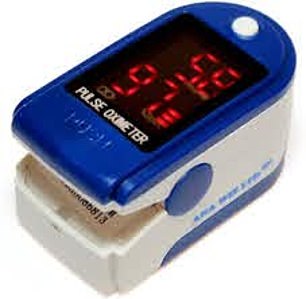A course of antibiotics may fight off an infection, but it can also leave you feeling under the weather.
For as well as killing off the bugs that cause the infection, antibiotics destroy good bacteria that help keep the body healthy and working well.
Probiotics, live bacteria found in certain foods such as yoghurt and sauerkraut and also available in tablet form, are increasingly seen as a solution to this.
The theory is that they reintroduce good bacteria to the gut, restoring balance in the body, alleviating troublesome symptoms and boosting health.
More than half of GPs now regularly give patients advice about taking probiotics, according to a survey of family doctors across Europe and the UK.

For as well as killing off the bugs that cause the infection, antibiotics destroy good bacteria that help keep the body healthy and working well
And new research suggests their use could have more widespread benefits — potentially even playing a role in treating those undergoing chemotherapy.
A study by British scientists published last month suggests that taking antibiotics can increase the speed of breast cancer growth because of the knock-on effects on gut bugs.
Trials in mice with breast cancer found that when they were given broad-spectrum antibiotics, including the common drug cefalexin, their tumours grew more quickly.
Secondary tumours — where the cancer had spread to other parts of the body — also increased in size, according to the study by researchers at the Quadram Institute in Norwich and the University of East Anglia.
They found that taking antibiotics reduced beneficial bacteria in the gut.
They also discovered that mice given antibiotics had more mast cells — immune cells known to promote tumour growth by triggering the formation of blood vessels in breast cancer tumours — and believe the two are linked.
Further studies will now investigate why the disruption of gut bacteria causes an increase in mast cells — and it is possible that the outcome may lead to probiotics being given to cancer patients.
The research, funded by the charity Breast Cancer Now, is still in the early stages and has several shortcomings; tests were carried out on mice rather than humans and used broad-spectrum antibiotics rather than antibiotics targeted at specific bacteria.
However, the findings, published in the journal iScience, are important because chemotherapy reduces the number of white blood cells in the body, making patients more susceptible to infection.
This could potentially leave doctors with a dilemma; if they prescribe antibiotics to treat an infection, could this speed up the progression of the disease?
Professor Kefah Mokbel, a breast surgeon at the Princess Grace Hospital in London, says the potential link between antibiotics and breast cancer growth has been known for ‘the last five years’.
One theory is that it’s because the gut microbiome is linked to the immune system; another is that antibiotics influence levels of the female hormone oestrogen in the body — both factors in breast cancer.
‘It suggests antibiotics should be used only when necessary in breast cancer patients and should be highly selective to target the causative bacteria,’ he says.
‘Unfortunately, many doctors do not pay attention to this important issue and tend to prescribe antibiotics without thinking about the potential harm.’
Professor Mokbel recommends that those requiring antibiotics should diversify their natural diets (to expose their guts to a wide range of bacteria), eat live yoghurt and take probiotics.
In another development, probiotics are being investigated as a stand-alone treatment for a range of diseases from irritable bowel syndrome to heart disease, type 2 diabetes, obesity and eczema.
These are not the probiotic food supplements you can buy in health food shops, but medical treatments that need to be prescribed by a doctor.
This approach — also known as bacteriotherapy — is already used to treat persistent gut infections such as C. difficile, the cause of food poisoning, by taking a pill containing specific good bacteria.
The gut microbiome is ‘possibly the most exciting area in medicine right now’, says Andrew Preston, a professor of microbial pathogenesis at Bath University, who believes it will increasingly be used to provide personalised treatments to patients.
‘It is not just about general wellness now, but treating specific conditions by addressing an imbalance of particular bacteria,’ he says.
The challenge is turning different patterns of gut bacteria into probiotic treatments.
Our gut microbiome is affected by all sorts of factors — lifestyle, diet, genetics, environment — making it remarkably difficult to prove the health benefits of probiotics because we are all so different, says Professor Preston.
What is clear is that while there is a ‘sound rationale’ for taking probiotics to offset the unwanted effects antibiotics have on the gut, you shouldn’t take them at the same time as a course of antibiotics.
‘The antibiotics will kill them off instantly,’ says Professor Preston. ‘Much better to take them once the antibiotics have cleared the system, normally a couple of days after the end of the course.’
Melody medicine
This week: Anti-epileptic effect
How music can improve your health. Listening to Mozart helps to reduce epileptic brain activity, research reveals.
In a study presented at the 7th Congress of the European Academy of Neurology, researchers compared the effects of listening to Mozart’s Sonata for Two Pianos K448 and Haydn’s Symphony No. 94 — by placing electrodes in the brains of epilepsy patients. The Mozart led to a 32 per cent drop in the electrical brain waves seen in epilepsy, compared with a 45 per cent increase after listening to the Haydn.
Lead researcher Professor Ivan Rektor, a neuroscientist, said: ‘We believe the physical acoustic features of the Mozart affect brain oscillations — or brain waves — and are responsible for reducing [the electrical brain waves].’ Acoustic properties include the music’s rhythm, dynamics and tone.
Advertisement Tools of the trade 
The instruments used by doctors and how they work. This week: Pulse oximeter
This tiny device is clipped on to your finger, or sometimes a toe or earlobe, to measure oxygen levels in your blood. This can be affected by a number of conditions — not just those involving breathing, such as asthma or Covid-19, but also heart problems and some cancers.
The process is non-invasive and entirely painless: the device works by passing a small beam of light through the blood vessels and recording how the light is absorbed through them — this differs depending on the level of oxygen in the blood. The results of a pulse oximeter test can help doctors gauge whether a patient needs further medical support or evaluate if the current treatment is working.
The first oximeter was developed in the 1940s and although widely used in hospital, it was the Covid-19 pandemic that really brought the device into the public eye, with some experts suggesting all homes should have one. You can now buy pulse oximeters to use at home, costing from £20.
Secrets of an A-List body
This week: January Jones’s thighs

January Jones has shown off her toned thighs in a series of photos on social media.
The 43-year-old Mad Men star has said she works on improving her posture and strength.
‘I started doing barre classes and after that I took regular private Pilates lessons,’ said the mother-of-one.
What to try: The jump squat works the inner and outer thighs. Stand with your feet shoulder-width apart and squat by bending your knees to 90 degrees as if sitting on a chair. Hold your hands in front of you for balance and support. Jump up explosively and land softly in the squat position with knees bent. Repeat ten times and perform three sets of jumps. Repeat three times a week.
Source link : https://www.dailymail.co.uk/health/article-10081229/Why-probiotics-help-tackle-effects-chemotherapy.html











